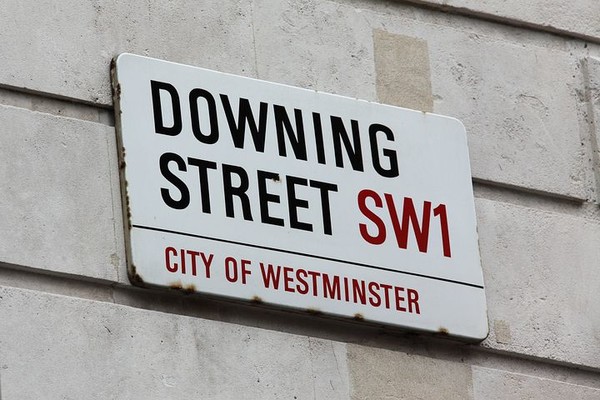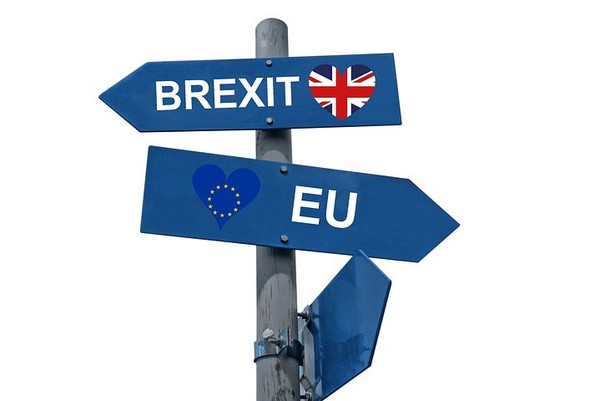The causes and implications of quick Prime Minister turnovers

ON OCTOBER 25, Rishi Sunak became the 57th Prime Minister of the United Kingdom. With his installation, Britain has now had three Prime Ministers in just seven weeks, showing the current tumultuous nature of British politics. The quick turnover of British Prime Ministers indicates the nation’s economic and political struggles in the wake of Brexit and also sheds a light on the complicated future of British politics.
Past Prime Ministers
The rapid Prime Minister turnovers started with the resignation of the 55th Prime Minister, Boris Johnson, who vowed to “get Brexit done[1].” Johnson’s term started off well as he “led the Conservative Party to its biggest election victory in decades” in the 2019 U.K. general election[2]. However, his term quickly became marred with controversy as reports came out about sexual misconduct amongst Conservative lawmakers and multiple parties during COVID-19 lockdowns at Downing Street, the Prime Minister’s residence[2]. Despite surviving a vote of no confidence in June, a flurry of cabinet resignations—including then Chancellor of the Exchequer Rishi Sunak’s—on top of previous scandals and rising economic crises led Johnson to resign on his own on July 7.
After Johnson’s resignation, then Foreign Secretary Liz Truss won against Rishi Sunak by 20,927 votes in an election amongst the Conservative Party and became its new leader as well as the next Prime Minister of the United Kingdom[3]. The main discourse surrounding Truss’s win was her stance on combating the cost-of-living crisis as well as the energy crisis created by Russia’s invasion of Ukraine, problems which were exacerbated by an above 10% inflation[3]. Ironically, Truss’s downfall was caused by her answer to these problems: to immediately slash taxes for corporations and the highest earners. After her Chancellor of the Exchequer, Kwasi Kwarteng, delivered a mini-budget that would provide £45 billion in unfunded tax cuts, the pound hit a record low value against the dollar, mortgage interest rates increased, and bond yields rose as investors became increasingly unwilling to own debt[4]. Hans Schattle (Prof., Dept. of Political Science and Int. Studies, Yonsei Univ.) explains that at a time when Britain was looking for stability after Queen Elizabeth II’s death, “Truss unveiled a series of tax reductions intended to jump-start the economy but offered no way to make up for the lost revenue to the government.” This led to Truss’s cabinet falling apart and her eventual resignation after just 45 days in office, making her the shortest serving Prime Minister in British history.

Rishi Sunak as the current Prime Minister
After other candidates like Boris Johnson and House of Commons Leader Penny Mordaunt dropped out of the race, Rishi Sunak came to power as Prime Minister with the support of 200 Conservative Members of Parliament[5]. In addition to dealing with the ramifications of Truss’s detrimental economic policy, Sunak has to contend with an ongoing energy crisis and incoming recession. Furthermore, given the numerous cabinet resignations and firings during Johnson and Truss’s terms, Sunak also faces the challenge of uniting the Conservative Party for a stable rule and possible victory in the next general elections.
Sunak is seen as a safer option for the office of Prime Minister compared to Johnson and Truss. Johnson was perceived as an almost Donald Trump-like figure with a pro-Brexit, nationalist, and anti-establishment stance who fell to personal controversies in an era of rising political, economic, and international crises[6]. Truss, meanwhile, was seen as “a low-tax, small-government conservative” whose tax cuts would only further fuel inflation[7].
Sunak’s response to Truss’s economic policy is to cut government spending and raise taxes. In fact, he previously criticized Truss’s economic plans and asked her the details of how she would fund the tax cuts, showing Sunak’s cautious attitude toward the economy[8]. An anonymous source disclosed to The Guardian that Jeremy Hunt, Sunak’s Chancellor of the Exchequer, is “reportedly looking to implement an equal split of 50% tax rises and 50% spending cuts, which could translate into £25 billion in hikes for taxpayers.” For now, Sunak has delayed the official announcement of his fiscal plan, citing the need for additional time to present a more comprehensive plan[9].
Despite having a positive reception in certain aspects, some citizens and experts have also shown skepticism to Sunak’s ability to lead the United Kingdom out of multiple crises. Regarding his economic policy, Conservative lawmakers and experts worry that cutting spending will lead to low growth and, subsequently, the party’s inability to get re-elected[10]. How Sunak navigates criticisms remains to be seen.

The current state and future of British politics
The tumultuous period of quick Prime Minister turnover indicates a deeper chasm in U.K. politics—one that traces all the way back to Brexit. While Prime Minister David Cameron introduced the Brexit referendum as a way to unite the Conservative Party, the move ended up backfiring[11]. Jill Rutter, a civil servant at the think tank Institute for Government believes Brexit to be “the number one destabilizing factor in British politics over the last six years”[12]. Schattle points out that Brexit has led to this tumultuous period of U.K. politics as the referendum “has cost Britain a lot in terms of lost investments and trading opportunities” and “kept this cast of characters in power, and the Tories[13] have brought the tumultuous state of affairs on themselves.”

Others believe that the United Kingdom’s political system is also to blame for the recent flux in leadership. For example, Patrick Dunleavy (Prof., Dept. of Govt., London School of Economics) points out how “Prime Ministers can freely appoint people to very important jobs without parliamentary oversight”[11]. Afterall, this is how Truss and Sunak came into power—when Prime Ministers resign before their term is over, it is up to their party to pick a new leader while the opposition and public seldom get a say. Regarding the culture of U.K. politics, Schattle states, “There is always a ‘loyal opposition’ ready and waiting to take shots at any missteps, actual or perceived, on the part of the Prime Minister.” Additionally, he points to how “the Conservative Party’s reservoir of capable leadership has now been nearly exhausted…after 12 consecutive years in power.” This is reflected in a recent YouGov poll where 63% of respondents want a snap election[4], despite approval ratings for the Conservatives rising with Sunak’s premiership. The last general election—when Johnson came into power—was in 2019. The next one is scheduled to take place in 2025, and with public support for them not quite guaranteed, it seems unlikely that Conservatives will call elections anytime soon.
This chaotic development in U.K. politics also has the effect of alienating the public, who feel like they do not have a say in the most recent Prime Ministers’ appointments. Schattle believes that for the Tories to try and regain the public’s trust, they “simply need to level with the public in a very open and transparent way about the problems the country faces post-Brexit” and “create more political opportunities for citizens in Britain to feel as if their voices matter and that they have a real stake in the country’s future.” At the moment, the public is left with Rishi Sunak. The effectiveness of his economic policies will be crucial to whether he can stabilize U.K. politics, and thereby assure the British people of a stable future after the slump of Brexit, the cost of living and energy crises, and the Prime Minister turnovers.
[1] The Washington Post
[2] The New York Times
[3] PBS NewsHour
[4] The Guardian
[5] TIME
[6] The Atlantic
[7] NPR
[8] The Guardian
[9] The Guardian
[10] Bloomberg
[11] NPR
[12] BBC News
[13] Tori: A colloquial name for a member or supporter of the U.K. Conservative Party
[14] Snap election: A general election that is called earlier than scheduled

